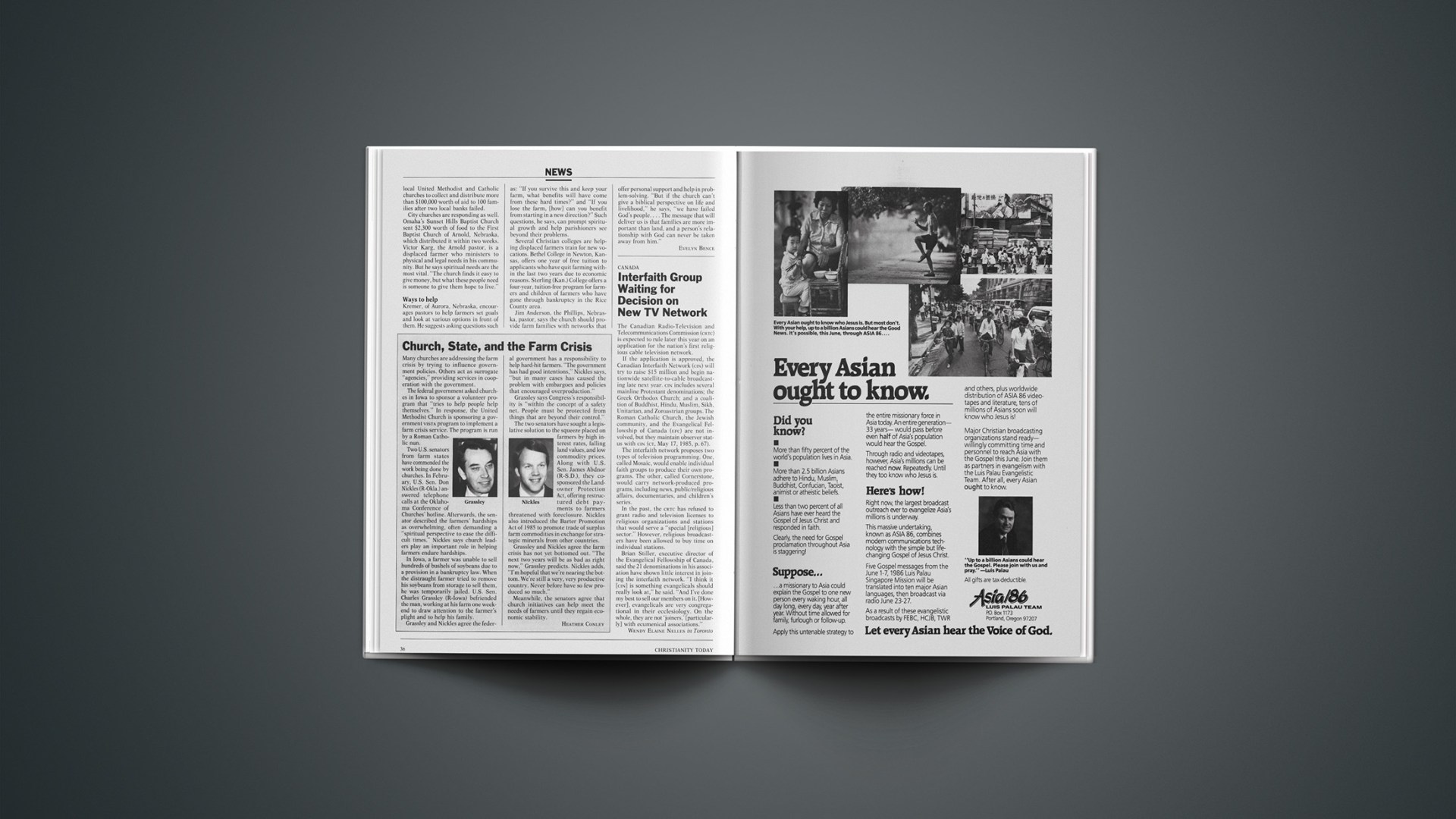The Canadian Radio-Television and Telecommunications Commission (CRTC) is expected to rule later this year on an application for the nation’s first religious cable television network.
If the application is approved, the Canadian Interfaith Network (CIN) will try to raise $15 million and begin nationwide satellite-to-cable broadcasting late next year, CIN includes several mainline Protestant denominations; the Greek Orthodox Church; and a coalition of Buddhist, Hindu, Muslim, Sikh, Unitarian, and Zoroastrian groups. The Roman Catholic Church, the Jewish community, and the Evangelical Fellowship of Canada (EFC) are not involved, but they maintain observer status with CIN (CT, May 17, 1985, p. 67).
The interfaith network proposes two types of television programming. One, called Mosaic, would enable individual faith groups to produce their own programs. The other, called Cornerstone, would carry network-produced programs, including news, public/religious affairs, documentaries, and children’s series.
In the past, the CRTC has refused to grant radio and television licenses to religious organizations and stations that would serve a “special [religious] sector.” However, religious broadcasters have been allowed to buy time on individual stations.
Brian Stiller, executive director of the Evangelical Fellowship of Canada, said the 21 denominations in his association have shown little interest in joining the interfaith network. “I think it [CIN] is something evangelicals should really look at,” he said. “And I’ve done my best to sell our members on it. [However], evangelicals are very congregational in their ecclesiology. On the whole, they are not ‘joiners,’ [particularly] with ecumenical associations.”
WENDY ELAINE NELLESin Toronto










